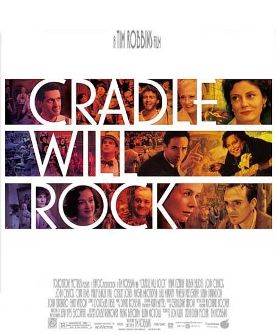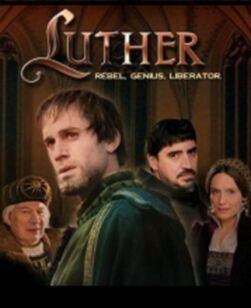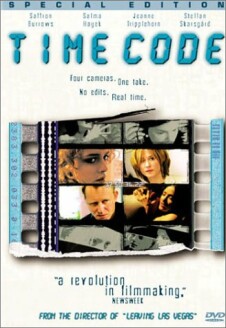Panic
Panic, written and directed by Henry Bromell, does a fine job of
setting up the classic therapeutic paradigm so beloved of the theorists of what
they call
“patriarchy.”
This it does, I take it, for political reasons, since the very existence of
“patriarchy”
depends on an explicitly political assumption, namely that there is some
realizable alternative to the sexual status quo which is ipso facto not
only better but compelling in its demands to be realized by political action.
Yet the political dimension of this movie is almost entirely implicit, and it
can be enjoyed by those who do not share its left-wing assumptions. In other
words, this is a movie that the film schools and other academics will love and
yet, remarkably, it is not half
bad—given, that is, that you can
suspend your disbelief long enough to watch it.
The story concerns a very special kind of patrilinear succession: a family
business, passed from father to son, in contract killing. The set-up, that is,
already establishes the film’s
fundamental identification of masculinity with violence and slaughter, but these
things are meant to be seen as domesticated. A certain amount of black humor is
generated by clichés like “your
father built this business up from nothing by
himself” in the context of murder. In
this it is like Analyze This only with a much more serious subtext, like
The Sopranos only politicized. Like both, too, it makes use of the
central device of a killer, bound by masculine ideas of honor, who visits a
therapist because he is haunted by the human implications of what he does as a
matter of duty and obligation or, as the
film’s patriarch, Michael (Donald
Sutherland) puts it,
“destiny.”
The cheerful assurance of Dr. Parks (John Ritter) that
“therapy is as common as gasoline;
it’s what keeps us going” is
charmingly glib, especially when we see immediately afterwards the smile die on
his lips as his patient, Michael’s son
Alex (William H. Macy), tells him that he kills people for a living. Clearly,
therapy is not what has kept him going. Moreover, it quickly becomes
clear that what he wants therapy for is not to go but to stop. Of course he is
confused, and when the therapist asks him why he has sought counseling he
answers: “I don’t know…I’ve never
been to a shrink before. I don’t believe in shrinks. I mean we are what we are,
right?” Here he is echoing his father,
whom we see in flashback teaching the boy Alex how to shoot a squirrel and
explaining the meaning of destiny: “It’s
who you really are. It’s who you’re really meant to
be.”
But Alex is going through what is fashionably known as a
“mid-life
crisis”—another way of saying that he
has come to doubt his destiny. The one thing he can explain about his feelings
is that he feels dead. His relationship with his wife, Martha (Tracey Ullman),
has been strained to the breaking point by his inability to talk to her about
what he does for a living, and he is clearly dominated by his father, who is now
settling into a genial old age as grandpa to
Alex’s adorable young son, Sammy (Liam
Aiken). Equally clearly, Alex’s own
relationship with Sammy is based on sharing and lots of quality time at home. We
can tell that he is a father determined not to be like his own father.
Alex finds a hope of escape in his attraction to a hairdresser and fellow
patient at the therapist’s office,
Sarah Cassidy (Neve Campbell). Here, too, there is a political subtext, since
Sarah is bisexual. “I like pussy, all
right?” she says to the therapist at a
point where she is unconscious of her fellow patient and his attraction to her.
“Why are you looking at me as if I
kill people for a living?” Sarah the
lesbian (we see her a-bed with a fellow hairdresser) thus becomes a vision of
escape into a feminized world that remains just out of reach for Alex. It is a
world promising freedom from the exacting demands of masculine honor and
reticence which have made a monster of his mother, Deirdre (Barbara
Bain)—a woman co-opted by the masculine enterprise and by his
father’s need of a confidante who has
now become daddy’s enforcer.
“Your father worked hard all his
life to make this business…and now you want to break his
heart,” she says to him when he talks
vaguely of quitting. “Are you getting
enough from Martha lately?” mom goes
on to inquire. “Men don’t get their
sex and they get wacky, and you are talking
wacky.” Note the pun on wacky and
whack, the slang term for contract killing. It is because he wants to get
un-whacky that Alex wants to quit, but of course his father
won’t let him. It is only when the
patriarch undertakes to introduce Sammy to his
“destiny”
as a man and a murderer that Alex is galvanized into bringing his long-buried
“issues”
with dad to a crisis.
Panic is a remarkably well-made film. It will give you an excellent
idea of what the other side is up to without being manipulative or making you
gag at its obvious tendentiousness. Now if only someone would make a film about
a masculine
“destiny,”
especially one involving violence (where is Rocky when we need him?)
where the patriarch was not the inevitable villain.
But is that even possible anymore?
“Business is business, Alex; a job is
a job,” says veteran actor Donald
Sutherland with something like real conviction but in a savagely ironic context.
In one hilarious flashback, daddy takes the young Alex on his first hit.
“You did it
kiddo,” he exclaims.
“I’m so goddamn proud of
you!” Could such lines appear in a
movie today where they were not ironic? I doubt it.
Discover more from James Bowman
Subscribe to get the latest posts to your email.






